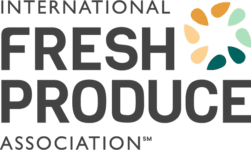IFPA submits updated policy recommendations to MAHA Commission
The International Fresh Produce Association (IFPA)’s updated policy recommendations to the Make America Healthy Again (MAHA) Commission offer strategies to increase fruit and vegetable consumption, reduce diet-related diseases and improve public health.
In a letter to MAHA Commission members, IFPA outlined 10 evidence-based recommendations prioritizing fruit and vegetable consumption in national health policy.
The MAHA Commission, established by a February executive order, is charged with addressing childhood chronic disease and is expected to release a second report by Aug. 12.
The commission’s first report, released in May, identified four major factors driving childhood chronic illness: poor diet, environmental chemicals, chronic stress and lack of physical activity and overmedicalization
 “For too long, our nation has fallen short of consuming the recommended daily amounts of fruits and vegetables, resulting in serious public health consequences,” IFPA CEO Cathy Burns said in a statement. “We appreciate the commission engaging farmers and produce leaders, as we’re uniquely positioned to help drive solutions. Proven programs like the Supplemental Nutrition Program for Women, Infants, and Children (WIC) and the National School Lunch Program show that when access improves, consumption increases.
“For too long, our nation has fallen short of consuming the recommended daily amounts of fruits and vegetables, resulting in serious public health consequences,” IFPA CEO Cathy Burns said in a statement. “We appreciate the commission engaging farmers and produce leaders, as we’re uniquely positioned to help drive solutions. Proven programs like the Supplemental Nutrition Program for Women, Infants, and Children (WIC) and the National School Lunch Program show that when access improves, consumption increases.
“Now is the time for a bold, coordinated strategy to put fruits and vegetables at the heart of our health policies — and IFPA is ready with actionable, evidence-based recommendations.”
IFPA’s recommendations are:
- Embed produce prescriptions as a covered benefit within the health system: IFPA advocates for incorporating produce prescriptions into federal health care programs, including Medicare, Medicaid and the Department of Veterans Affairs, to support diet-related disease prevention and reduce healthcare costs.
- Enhance nutrition clarity in food labeling: IFPA calls on the U.S. Food and Drug Administration to mandate transparent labeling for food products claiming fruit and vegetable content, enabling consumers to make informed dietary choices.
- Expand financial incentives for fruit and vegetable purchases: IFPA proposes making fresh produce eligible for Health Savings Accounts and Flexible Savings Accounts, along with a federal tax credit for purchases that align with Dietary Guidelines for Americans.
- Expand the Fresh Fruit and Vegetable Program: IFPA recommends extending Fresh Fruit and Vegetable Program access to all elementary schools and eventually middle and high schools, helping students develop healthy eating habits early.
- Modernize USDA purchasing programs: IFPA calls for recalibrating USDA procurement strategies to include a broader range of fresh produce and increase distribution to underserved communities through nonprofit organizations.
- Increase fruit and vegetable access for SNAP recipients: Citing USDA research, IFPA suggests incentivizing produce purchases through the Supplemental Nutrition Assistance Program (SNAP) to help recipients meet dietary recommendations.
- Enhance data collection for federal nutrition programs: IFPA supports a systematic approach to track and analyze federal feeding and nutrition program data, ensuring alignment with public health goals.
- Support access to safe crop protection tools: IFPA urges the administration to strengthen product assessment and registration efforts within EPA’s Office of Pesticide Programs, ensuring fresh produce growers can access effective and safer technologies to protect crops against pests, weeds, and diseases.
- Invest in specialty crop research and innovation: IFPA recommends fully funding agricultural research programs that drive innovation in specialty crop production, pest management, mechanization and plant breeding.
- Incentivize regenerative agriculture practices: IFPA calls on policymakers to support voluntary, incentive-based programs that promote regenerative agriculture systems, enhancing soil health, biodiversity, water efficiency and climate resilience while ensuring a stable, profitable and sustainable fresh produce supply.










